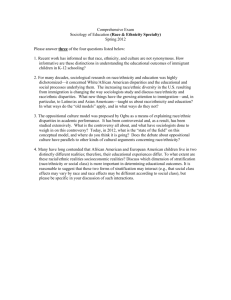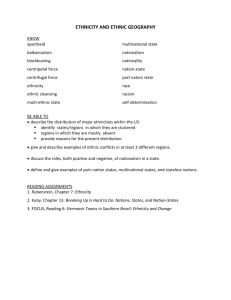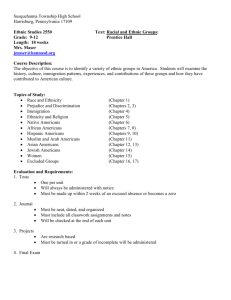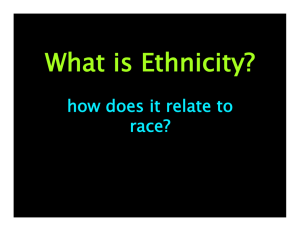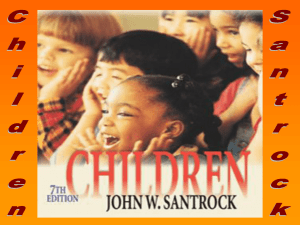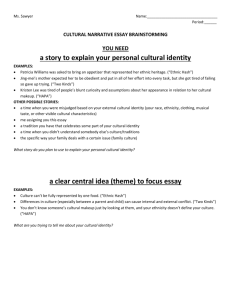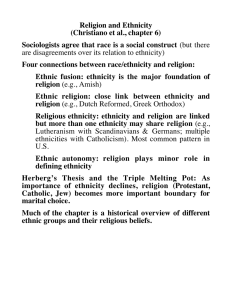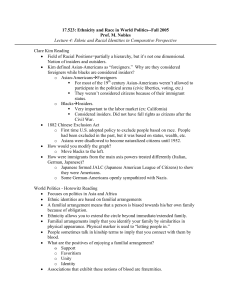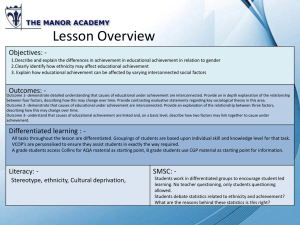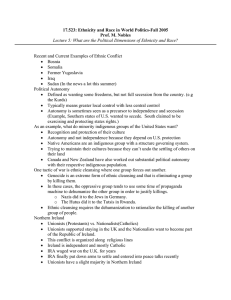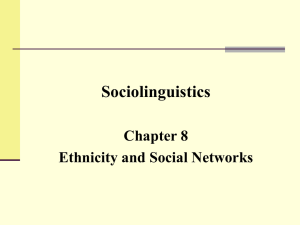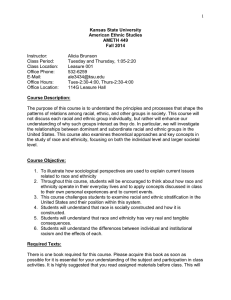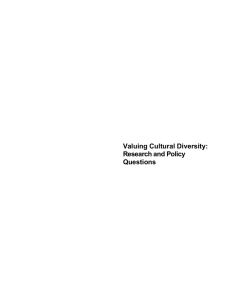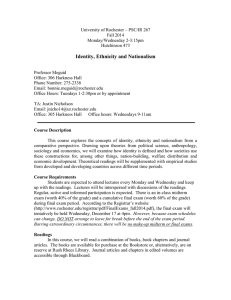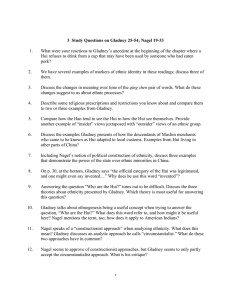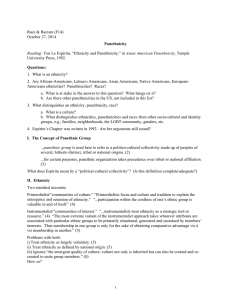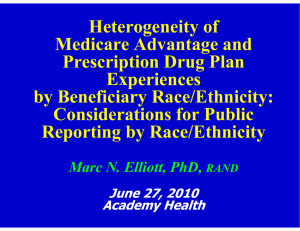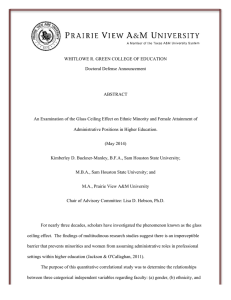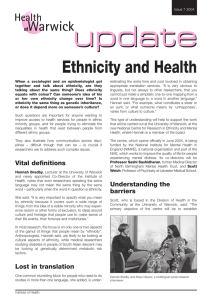education
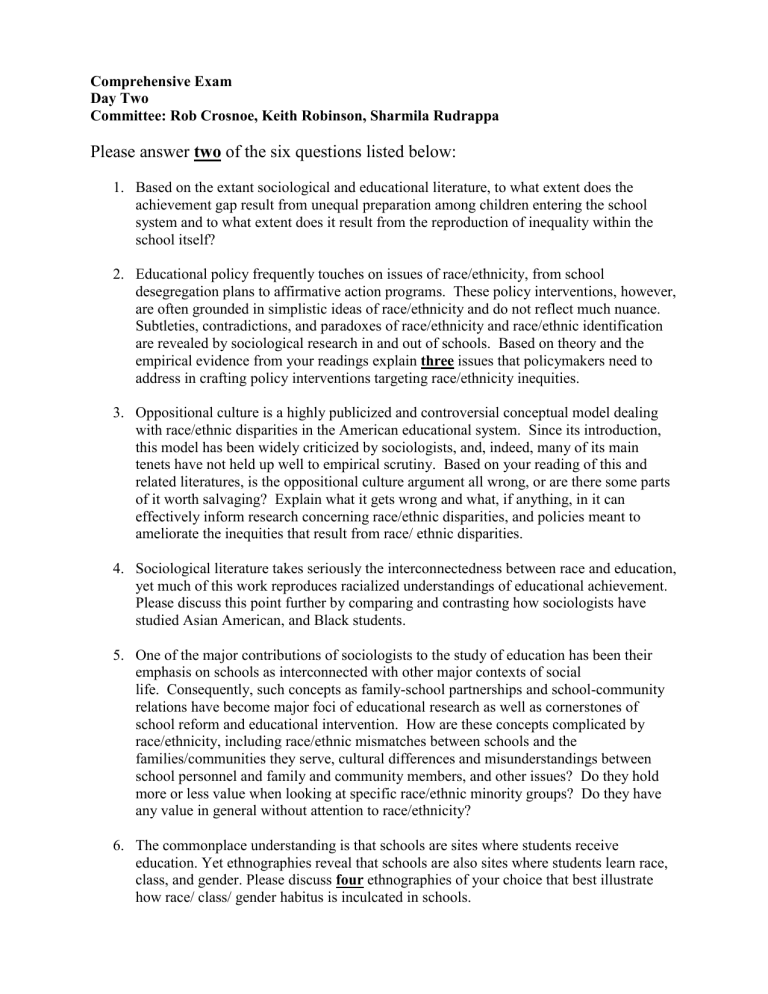
Comprehensive Exam
Day Two
Committee: Rob Crosnoe, Keith Robinson, Sharmila Rudrappa
Please answer
two
of the six questions listed below:
1.
Based on the extant sociological and educational literature, to what extent does the achievement gap result from unequal preparation among children entering the school system and to what extent does it result from the reproduction of inequality within the school itself?
2.
Educational policy frequently touches on issues of race/ethnicity, from school desegregation plans to affirmative action programs. These policy interventions, however, are often grounded in simplistic ideas of race/ethnicity and do not reflect much nuance.
Subtleties, contradictions, and paradoxes of race/ethnicity and race/ethnic identification are revealed by sociological research in and out of schools. Based on theory and the empirical evidence from your readings explain three issues that policymakers need to address in crafting policy interventions targeting race/ethnicity inequities.
3.
Oppositional culture is a highly publicized and controversial conceptual model dealing with race/ethnic disparities in the American educational system. Since its introduction, this model has been widely criticized by sociologists, and, indeed, many of its main tenets have not held up well to empirical scrutiny. Based on your reading of this and related literatures, is the oppositional culture argument all wrong, or are there some parts of it worth salvaging? Explain what it gets wrong and what, if anything, in it can effectively inform research concerning race/ethnic disparities, and policies meant to ameliorate the inequities that result from race/ ethnic disparities.
4.
Sociological literature takes seriously the interconnectedness between race and education, yet much of this work reproduces racialized understandings of educational achievement.
Please discuss this point further by comparing and contrasting how sociologists have studied Asian American, and Black students.
5.
One of the major contributions of sociologists to the study of education has been their emphasis on schools as interconnected with other major contexts of social life. Consequently, such concepts as family-school partnerships and school-community relations have become major foci of educational research as well as cornerstones of school reform and educational intervention. How are these concepts complicated by race/ethnicity, including race/ethnic mismatches between schools and the families/communities they serve, cultural differences and misunderstandings between school personnel and family and community members, and other issues? Do they hold more or less value when looking at specific race/ethnic minority groups? Do they have any value in general without attention to race/ethnicity?
6.
The commonplace understanding is that schools are sites where students receive education. Yet ethnographies reveal that schools are also sites where students learn race, class, and gender. Please discuss four ethnographies of your choice that best illustrate how race/ class/ gender habitus is inculcated in schools.
